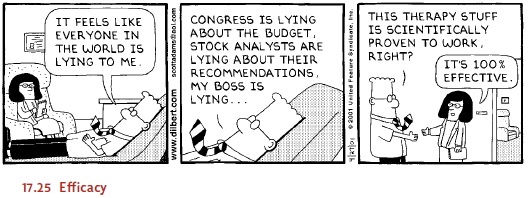Chapter: Psychology: Treatment of Mental Disorders
The Importance of Empirically Supported Treatments of Mental Disorders
The Importance of Empirically Supported Treatments
Practitioners
of any form of therapy obviously want to be sure that they are providing
benefits and doing no harm, and this has led many clinicians and researchers to
seek ways of validating their therapy—making certain it works (Figure 17.25).
In addition, validation has become more urgent in the last few years, fueled by
a worldwide move-ment toward identifying empirically
supported treatments (EST)—that is, treat-ments that are based on solid
research. This movement was initially aimed at the broad practice of medicine
(Sackett, Straus, Richardson, Rosenberg, & Haynes, 2000; Sox & Woolf,
1993) but has led to a similar movement within education, social work, and
psy-chology (American Psychological Association Presidential Task Force on
Evidence-Based Practice, 2006; Chambless & Ollendick, 2001; de los Reyes
& Kazdin, 2008).

Many
factors have contributed to this movement toward EST in psychology. One
consideration lies in a number of prominent critiques of psychotherapy. An
early attack launched by the British psychologist Hans Eysenck was particularly
concerned with the efficacy of psychoanalysis and similar “insight” therapies
(Eysenck, 1952). Although more recent studies have challenged Eysenck’s
conclusion that psychotherapy has no curative effects, his criticisms and
concerns fed into the broader movement demanding that psychotherapy be
validated empirically.
A
second factor that has contributed to the EST movement has been the
develop-ment of pharmacological treatments. These medications, as we have seen,
can be extremely helpful, but they can also have unfortunate side effects,
making it crucial that we use them only for the patients and the disorders for
which they are clearly effective. In addition, the availability of these
medications invites questions about the value of nonmedical treatment—namely,
psychotherapy. Is it possible that hours of therapy might be replaced by simply
taking a pill? This notion obviously demands a careful evaluation of whether
psychotherapy works or not.
One
last factor fueling the EST movement involves the cost of therapy. Psychotherapy requires hours with a trained professional,
and many of the medications for mental disorders are quite expensive, too. In
many cases, the expenses are covered by insurance, but as health expenses have
risen, insurance companies have grown more concerned about making certain that
the treatments they are paying for are worthwhile (Zarkin, Grabowski, Mauskopf,
Bannerman, & Weisler, 1995).
Related Topics